Say no to corruption, selective baby names and interesting facts about Denmark
Referring to Denmark, we often think of the fairy tale Andersen with the little match girl, the mermaid.
But in this beautiful country, there are other interesting things that you may not know.
Bike capital
In the beautiful capital of Copenhagen, Denmark, there are more bicycles than people here. The people here are well off, their income is more than enough to drive a car, but their passion for bicycles is still the number one choice for them. Currently, almost every one of Copenhagen's more than one million residents owns a bicycle. About 375 km of bike paths have been stretched in the city. Danes admit that traffic is still a serious problem, as many people still own cars and trucks are still used by companies to deliver goods. Thanks to the climate change response measures taken in 2017, Copenhagen only emitted about 1.37 million tons of CO2, 40% lower than 2005. The Copenhagen government took many measures to reduce it significantly. emissions of hazardous substances, including the transformation of HOFOR Energy Company into a wind energy company. HOFOR leaders said that by 2025, 360 wind turbines will be built in the city. Also in the near future, the company plans to replace coal-fired power plants with power generation facilities that use wood pellets as biofuel.
Say no to corruption
Denmark and New Zealand are the two least corrupt countries in the world according to the Corruptions Perception Index. Children here have been taught since childhood not to touch things that are not theirs and to absolutely respect the law. With Denmark, there are no exceptions. From 1660, King Frederik III issued a decree to severely punish officials guilty of corruption, accepting or giving bribes, fraud, and forging documents. The king's determination reduced corruption in management and after a while became the framework for the whole kingdom (Kingdom of Denmark - Norway, from 1524 to 1814 including Denmark and Norway). Circuit, Norway and Sweden). The good thing is that the Danes know how to promote this tradition. Children from the moment they can talk are taught by adults not to touch anything that is not theirs and to respect the law. In the suburbs and rural areas, people still have the habit of placing stalls on the side of the road or in front of the gate, selling fruits, fresh flowers, honey... without looking after them. For the Danish public and press, transparency is no exception. For example, Queen Margrethe II, although respected by the majority of the people, the press still "looks closely" at the expenditures of her and the royal members.
Baby names need to be selective
In Denmark, choosing a name for a child is a serious, statutory undertaking and requires approval from the Ministry of Ecclesiastical Affairs and the Ministry of Family and Consumer Affairs. The First Names Act was designed to protect innocent children in Denmark who do not deserve to be made fun of or ridiculed. Denmark, like other Scandinavian countries, does not like being unique or different. While other Nordic countries have similar laws, Denmark's is the strictest, to the point that the Ministry of Justice is proposing to relax the law. It is expected that the proposed changes will be discussed at the National Assembly in November. "The government, from a historical perspective, feels a responsibility to its citizens," said Rasmus Larsen, chief adviser to the Ministry of Ecclesiastical Affairs. "They don't want to see people stuck in the problem and unable to defend themselves." Parents-to-be can choose a pre-approved name from the government's list of 7,000 names, mostly British and Western European, - 3,000 boy names and 4,000 girl names. Some ethnic and religious names, such as Ali and Hassan, have also been added. However, those who do not wish to choose names from this official list must obtain permission from the local church, which registers names for infants. Applications for name acceptance must be reviewed by the University of Copenhagen Name Inquiry Committee. The body that has the final approval or disapproval is the Congregation for Ecclesiastical Affairs. This rule applies if one of the parents is Danish.
Dispute over uninhabited islands
According to the World Atlas Organization, Hans Island is located in the middle of the Nares Strait (about 35km wide) - the point that separates Greenland, an autonomous territory of Denmark, from Canada. According to international law, all countries have a 12-nautical-mile claim. In this case, Hans Island is in the territorial waters of both Denmark and Canada. Canada and Denmark once disputed an uninhabited island. This Hans island is less than 1 square kilometer wide. The two sides had a gentle dispute and it was called the "whiskey war". They left bottles of wine and planted flags on the island. And just like that, both sides throw away the bottles of wine and the flag of their country and replace it with their own flag and wine.
Monarchy
The Danish monarchy is a constitutionally and systematically existing political system in the Kingdom of Denmark. The territory of Denmark now includes not only the country itself (i.e. Denmark), but also autonomous regions such as Greenland and the Faroe Islands. The current Danish monarchy is represented by Queen Margrethe II, who legally inherited the Danish throne after the death of her father, King Frederik IX, on January 14, 1972. Traditionally, the name "throne" " (regnal names) in Denmark are structured according to the fixed chronological name of the religious monarch (specifically, "Christian"). The current ruling queen in the country is a Christian (or Christian), whose future successor will be Crown Prince Frederik. The Danish monarchy operates primarily under the Constitution, in which the king is called "Konge" (king). The King will carry out ceremonial, diplomatic and other affairs, while the important things related to the administration of the country will be taken up by the Prime Minister of Denmark, the king will have an advisory role and be limited to one day. certain rights. The Danish monarchs do not join any party, but have the power to decide on the appointment of a new Prime Minister and cabinet. The Danish monarchy is over 1000 years old, making it the oldest monarchy in Europe and still in existence today.
Trieu Vy joined a secret meeting with Jack Ma, and Huynh Huu Long "laundered money" so he was locked up?  Hà Hà01:17:20 05/09/2021Recently, the ON site cited some doubts, claiming that Trieu Vy is one of the members of the mysterious Freemasonry organization. In addition, the actress's illegal business activities with her husband Huynh Huu Long are also the reason why "Little Swallow" flew out of the...
Hà Hà01:17:20 05/09/2021Recently, the ON site cited some doubts, claiming that Trieu Vy is one of the members of the mysterious Freemasonry organization. In addition, the actress's illegal business activities with her husband Huynh Huu Long are also the reason why "Little Swallow" flew out of the...
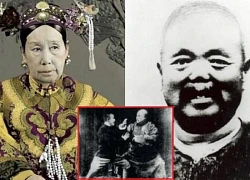






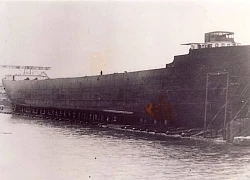 The ship that disappeared in 1913 suddenly appeared, revealing the "mysterious" truth deep under Lake Huron
The ship that disappeared in 1913 suddenly appeared, revealing the "mysterious" truth deep under Lake Huron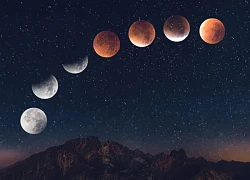 Vietnam in the lunar eclipse 'hunting' zone, 102 opportunities to see the beauty of the sky
Vietnam in the lunar eclipse 'hunting' zone, 102 opportunities to see the beauty of the sky The mystery of the dirtiest man in the world, who died just after the first shower
The mystery of the dirtiest man in the world, who died just after the first shower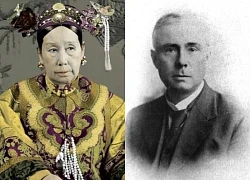 Empress Dowager Tu Xi suspected that she had 3 lovers, 1 foreigner, who were the other 2?
Empress Dowager Tu Xi suspected that she had 3 lovers, 1 foreigner, who were the other 2?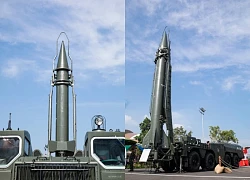 Scud-B ballistic missile causes a stir at the September 2nd military parade: Over 34 tons, maximum range 300km
Scud-B ballistic missile causes a stir at the September 2nd military parade: Over 34 tons, maximum range 300km China: 'Giant straw' pierces from the sky to the ground, revealing a chilling secret!
China: 'Giant straw' pierces from the sky to the ground, revealing a chilling secret! Mystery of the Bermuda Triangle: Discovery of "rogue waves", explaining a series of disappearances
Mystery of the Bermuda Triangle: Discovery of "rogue waves", explaining a series of disappearances What is MMA that helps a girl defeat a tattooed young man in a split second?
What is MMA that helps a girl defeat a tattooed young man in a split second?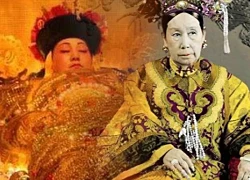 The secret bedroom of Empress Dowager Cixi, the most powerful but with a debauched love "drama"
The secret bedroom of Empress Dowager Cixi, the most powerful but with a debauched love "drama"
4 | 0 Discuss | Report